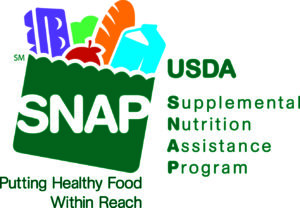The ag and food industry, particularly the meat, dairy and produce sectors, welcomed the new Dietary Guidelines for Americans, but soybean growers were alarmed by statements calling into question the…
Senate Ag’s SNAP Cost-Share Plan Approved by Parliamentarian
Politico’s Grace Yarrow reported that “the Senate parliamentarian on Thursday approved Republicans’ tweaked plan to push some costs of the nation’s anti-hunger program onto states, allowing them to maintain a crucial $41 billion spending cut that will help pay for their policy megabill.”
“The new version of the bill will give states more time between finding out how much of the Supplemental Nutrition Assistance Program they’ll need to pay for, and when they actually need to start paying,” Yarrow reported. “‘This paves the way for important reforms that improve efficiency and management of SNAP while encouraging responsible use of taxpayer dollars,’ Senate Agriculture Committee Chair John Boozman (R-Ark.) said in a statement announcing the ruling.”

“The decision marks a win for GOP leaders, who are working through several other adverse rulings on critical provisions from the parliamentarian in accordance with the chamber’s strict reconciliation rules — all ahead of a July 4 deadline,” Yarrow reported.
What is the New Cost-Share Plan?
Yarrow reported that “the Senate Agriculture Committee’s new plan allows states to choose to use either their 2025 or 2026 fiscal year payment error rates to calculate what their cost share requirement will be beginning in the 2028 fiscal year. However, starting fiscal year 2029, the state’s responsibility will be calculated using the payment error rate averaged from the three prior years.”
The Hill’s Alexander Bolton and Aris Folley reported that “Boozman told The Hill on Monday that the parliamentarian was primarily concerned that the legislation did not provide enough time and flexibility for states to adapt to the proposed changes. ‘They were concerned that [states] wouldn’t have enough time with the data that they received in order to adjust for the payment errors. Our answer to that is to come up with a fix to provide them the data sooner,’ he said. ‘That was the parliamentarian’s concern.'”
Yarrow reported that “some states will be exempt from paying for SNAP if they can get their payment error rates below 6 percent. The updated plan would cut around $186 billion from federal spending on agriculture, with the majority coming from SNAP, down from the original plan of trimming $211 billion. The number of cuts still surpasses the Senate Agriculture Committee’s original instruction to slash $1 billion, but there is a wide gap between the Senate’s projected savings and the $295 billion in cuts that the House Agriculture Committee landed on.”
“The Senate Agriculture Committee is still waiting for a final savings estimate from the Congressional Budget Office,” Yarrow reported.
Democratic Governors Push Back
Newsweek’s Aliss Higham reported that “all 23 Democratic governors have penned a letter imploring Congress not to ‘gut’ funding for the Supplemental Nutrition Assistance Program (SNAP) nor shift financing responsibility to the states.”
“The letter addressed to Senate and House minority and majority leaders argues that cost-sharing proposals outlined in the bill would ‘effectively gut this critical food assistance that helps families with children, older adults, and working people afford the rising cost of groceries and put food on the table,'” Higham reported. “Signed by the 23 governors, it warns that some states may need to withdraw from the program entirely because they cannot afford it, ‘potentially cutting off millions of Americans from this vital assistance.'”
Governor Andy Beshear: “If this big ugly bill passes, American children and American seniors are going to go hungry. They’re going to have that pain in their stomachs and throughout their body when they’re trying to go to bed or when they’re waking up in the morning.” pic.twitter.com/tLqP71a2eD
— Senator Amy Klobuchar (@SenAmyKlobuchar) June 26, 2025
“The letter warns that Congress is putting states in an ‘impossible ultimatum,’ forcing them to either find new funding to cover federal SNAP cuts or reduce access to critical food assistance,” Higham reported. “They called the expectation that states could realistically backfill such cuts ‘unrealistic,’ emphasizing that failure to meet the full cost-share would leave states with few choices: cut SNAP enrollment or shut down their programs entirely.”





